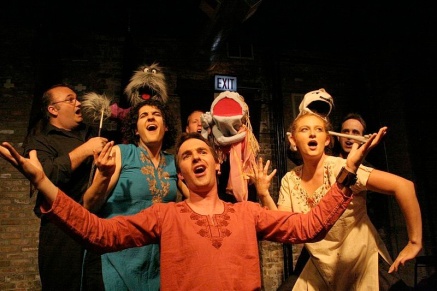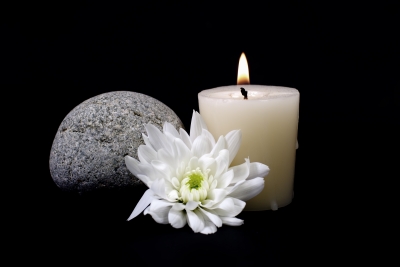As one who lives in both the extroverted arena of improvisational theater and the introverted realm of contemplative practice, I sometimes feel a bit schizophrenic. Earlier this fall, I traveled directly from a San Francisco conference with the Applied Improvisation Network—more than 220 charismatic, rollicking folks from all walks—to a quiet group retreat on Bainbridge Island in Puget Sound. I loved the first and reveled in the second, chuckling to myself when I met two colleagues at the airport and found us simply riding an escalator together without needing to say a word. Ahhhh…silence. Lurching between these two poles can seem crazy, but I love them both dearly.
Thankfully, further exploration makes the apparent opposition fade away. Over time, improv and contemplation become like good friends walking a single purposeful path, each complementing the other’s strengths and covering for the other’s weaknesses. Together, they go places that neither could find alone.
For example, contemplative practice helps improvisors draw on the depth of possibility in the present moment.[1] Focusing keenly on what is right in front of us loosens our fear of the future unknown. When we look closely, we see that we already have everything we need for a scene’s unfolding: attention, listening, relationship. As in the practice of mindfulness, we can maintain both a sharp eye and a soft focus, finding natural flow while also attending to a story’s arc within a larger performance. Contemplation can turn down the volume on improv’s sometimes manic schtick, bringing out a quiet humor of everyday life that leaves audiences refreshed rather than exhausted. Whether performing or teaching, a slower pace lets us more fully appreciate the parade of insights and wonders coming through the creative moment.

Improv: joy, inspiration, creativity.
….
(https-:commons.wikimedia.org:wiki:File-Un-Scripted_Theater_Company_at_CIF2009)
Improvisation can help us contemplatives as well. For one, it gets us moving and laughing. So often, meditation and reflection take a sedentary position and a somber tone. We’re searching for serious wisdom. This is important work. Well, getting up and getting silly gives us access to insights we couldn’t find in other ways—and they bring great joy. Furthermore, the unpredictable unfolding of a scene or game flings us into an ambiguous world between comfort and danger. We’re off-balance, yes, but we have to be if we want to take a next step. Soon we see that most questions that come up in a scene can apply to life in general: What comes next? What can I offer? What makes this relationship matter? Improv invites us to connect more openly with those around us, too, asking for bold offers and a willingness to be changed. It also lets us taste the waters of a deeper well. I don’t know where that idea came from, but it wasn’t from me. In improv, we learn to enjoy our life stories—and our meditative inquiries—as ongoing adventures. We partner with larger mystery. We learn to create.
Contemplative practice offers more than just a “spa for the soul” and improvisational theater includes way more than zany hijinks. Taken together, they make a powerful pair for finding—and then applying—creative insights that make a tangible difference in the world. Vitality and depth. Motion and meaning. Partners on a single path.
[1] I define contemplation as “a practice of mindful inquiry or engaged curiosity, a generous and open discernment that welcomes available wisdom in whatever form it arrives.” Most often it’s quiet, receptive, and individual; sometimes it’s vocal, initiative, or shared. Waiting and seeking, both qualify.
This post also appears on the Center for Courage and Renewal’s blog. Many thanks to the Center’s Erin Lane for her inspiration and encouragement.


“like good friends walking a single purposeful path, each complementing the other’s strengths and covering for the other’s weaknesses. Together, they go places that neither could find alone.”
Such a beautiful truth. I love the way you put this juxtaposition of actions.
Thanks for your comment, Sue. It has become a real source of resilience for me when facing challenges in any given moment. If the insights or methods of improv aren’t “working”, I ask myself “what might mindfulness have to say about this?” And then a new possibility likely emerges. It makes me want to keep adding ‘friends’ to the path.